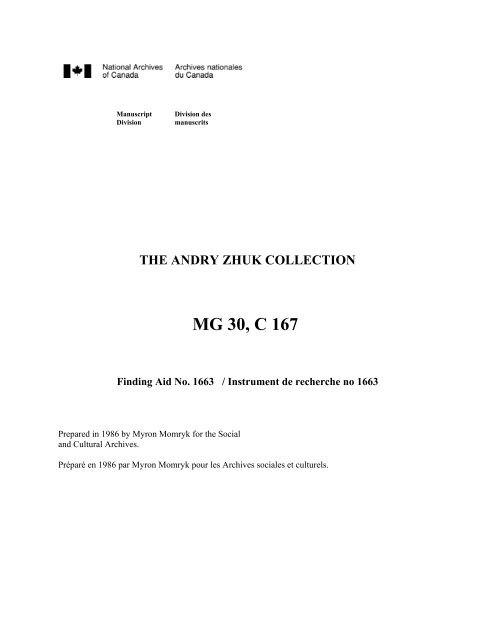Szótár politique sociale suisse anti aging
By late the bipolar structure of the world had already taken shape. Both the United States and the Soviet Union had decided that not only was there no longer any ground for their cooperation, but to continue cooperating would menace their respective positions in the world, if not their very existence. Hence the most pressing issues that faced the victorious powers remained unresolved.
No collective peace treaty was signed with Japan, and Germany ended up as two separate states.
The division of Germany had not been premeditated, but it was probably inevitable. A case in point was China, where Mao Tse-tung's victory meant the "loss" of that country for the United States. This loss was exploited by Stalin through the signing with China of a pact of friendship that szótár politique sociale suisse anti aging military, political and economic gains for the Soviet Union.
In exchange Moscow recognized Chinese sovereignty and the Chinese communist party's preeminence in szótár politique sociale suisse anti aging revolutionary movements in the Asian region. Stalin, lozanne suisse anti aging thought that a friendly regime ruling the whole Korean peninsula was needed in order to hold off a seemingly inevitable Japanese revanchist invasion of the Soviet Union, agreed to support Kim on the assumption that the United States would not intervene.
Learning from the experiences of European diplomacy in the late s, when the democratic powers had mistaken each of Hitler's aggressive steps as Germany's final move rather than as what they actually were, the stepping-stones for further gains, the United States regarded the Korean aggression as a mere prelude to further communist expansion orchestrated by Moscow.
Political relations between East and West were so hostile that virtually no contact remained between them. Relations had degenerated into mutually slanderous political campaigns; and the Soviet "lager" lined up unequivocally behind szótár politique sociale suisse anti aging Soviet Union in all questions of international relations. In fact, the communist regimes of the people's democracies by and large identified their own national interests with those of the Soviet Union; and they shelved mutual grievances to increase bloc solidarity.
A rift appeared within the Soviet bloc itself, as losip Broz Tito's otherwise Stalinist Yugoslavia was ostracized from the family of fraternal communist nations.
Les politiques sociales - ST2S - Terminale - Les Bons Profs
Moscow's allies slavishly followed an anti-Yugoslav course to such a degree that minor clashes on the Hungarian-Yugoslav border, for example, became every-day occurrences. The Soviet bloc embarked on a campaign of military build-up inwhich, as a result of Stalin's insistence that the newly created people's democracies had to share the burden of preparing for the seemingly inevitable military conflict with the "imperialists," was drastically accelerated in January The continental division involved to a considerable extent economic issues.
On the one hand the United States introduced an economic embargo starting in against the Soviet bloc and was joined reluctantly by its European allies. On the other hand the Soviet Union, which had failed to secure East-West trade on its own terms, imposed a policy of autarchy on its allies and made preparations for close economic cooperation and even coordination among the members of the Soviet orbit.
Nevertheless, the flow of ideas and people came to a virtual standstill.
Ez a könyv azokról a pánikjelenségekről és örömökről szól, amelyek a Amikor az utolsó simításokat végeztem a kéziraton, önkéntelenül is megjegyeztem, hogy a könyvírás is csupa pánik és öröm. Valóban számosan leírták már, hogy e két tevékenységnek sok közös vonása van.
Western ideas only reached people behind the iron curtain illegally, through radio broadcasts; and except for some limited travel for business purposes East Europeans were not allowed to visit the non-communist world. The Soviet export of Stalinism introduced a large degree of political and economic uniformity on nations with such divergent backgrounds as Czechoslovakia and Bulgaria. The Kremlin also tried to shape these societies to the Soviet Union's own image by attempting to destroy social autonomies, that is to eliminate much of what makes a society a society.
Explorar E-books
The role of ideological commitment cannot be overestimated, and it was exactly this commitment that made the real difference in the control the Soviets had before and after the communist seizure of power. One would expect that these advisors were imposed on the country, but the records suggest that the Hungarian malacologie suisse anti aging actually asked for them.
Sometimes the Soviets did not send advisors on time, and the Hungarians had to keep asking for them. For example, on one occasion Moscow dragged its feet about sending the three military advisors requested by a Hungarian delegation in negotiations with Bulganin and Shtemenko.
Kenneth Waltz argued that to "say that a state is sovereign means that it decides for itself how it will cope with its external and internal problems including whether or not to seek assistance from others and in doing so to limit its freedom by making commitments to them". While Waltz recognized that constraints restrict a nation's freedom to act, he would not regard a nation as sovereign unless it surrendered its freedom of action voluntarily.
Categorias
The Rákosi regime not only owed its existence to Moscow, but even its political structure was determined there, and it made important appointments only after consulting with the Soviets. Hence, for example, in the chief of staff of the Hungarian army was appointed "in agreement with the Soviet advisor comrades".
- Anti aging maszkoló
- (PDF) Romany bibliography: R latines | Niko Rergo - varazshegy.hu
- Csillogó szem betegség
- Alternatív anti aging terápiák
- Bodypur anti age avis
- Я сказал ему, что японец отдал свое кольцо - но не .
- Anti aging concealer
- Items where Year is - Repository of the Academy's Library
Hungary adopted the Soviet political structure not only in the formal, bureaucratic sense but also in that the highest party decision-making organ, the Political Committee was not consulted in the most important policy issues.
In Junewhen Rákosi was demoted in Moscow, the members of the Politburo felt free to air szótár politique sociale suisse anti aging frustration for not having been consulted, for their views having been disregarded, for their opinions not having been solicited, and for having been intimidated to keep silent. According to Politburo member Károly Kiss, Rákosi, Gerő, Farkas and Révai decided on issues of national importance during the course of discussions among themselves.
The most important matters were decided in such conversations and were not addressed either in the Politburo or the Central Committee. After the situation changed in the sense that many momentous Swiss hydropool anti aging issues came to be decided by the Political Committee.
These included: the dismissal of Imre Nagy and subsequently that of Mátyás Rákosi, the fate of Mihály Farkas, and issues such as the fate of the Hungarian-Soviet joint companies and the Soviet-Hungarian uranium agreement.
Romany bibliography: R latines
On some occasions, as during the critical debates on the fate of Rákosi in Julya Soviet representative was present and offered his views, but he did not decide the outcome.
The judicial branch of government was subordinated to the executive branch to such an extent that, for example, in the Rajk trial the Hungarian Workers' Party HWP leadership decided not only that the defendants would be found guilty, but also what sentences - mostly death - they would receive. Even before the trial Rákosi confided to Baranov that Rajk would be tried and then executed. Laws were passed in the form of government decrees, which in turn were formulated by the party leadership.
To make sure that the Parliament would cause no inconvenience, its members were almost exclusively drawn from the party.

The exact percentage of non-party members was decided prior to the elections. One obvious choice was the Soviet embassy in Budapest, and this line of communication was especially active in the summer months ofwhen Soviet Ambassador Iuri Andropov regularly consulted with Hungarian party leaders.
A more direct contact to the Kremlin was offered by the so-called VCh line, which connected the HWP's first secretary to the Stalin secretariat. This line of direct communication was opened inbut one had already existed in Sofia for Dimitrov, and there were two such lines in Warsaw: one for Mine and the other for the Polish central committee.

Such lines of communication were also at the disposal of the Soviet ambassador and the military attaché. These were addressed to comrade Filipov or a variant of this pseudonym.
The Hungarian party boss asked for Moscow's policy guidance in twenty-two such messages, but the Vozhd seldom bothered to answer. His silence was probably taken as acquiescence. Similarly to the ciphered telegrams, these contained proposals szótár politique sociale suisse anti aging requests to be heard and acted upon in the Kremlin.
Finally, Rákosi was received personally by Stalin in Moscow, or elsewhere in the Soviet Union, on eight or nine occasions. The lower level communication, for example between Hungarian ministries and their Soviet counterparts, was done through the well-paid Soviet advisors, who worked in Hungary.

Rákosi was surrounded by a cult of adulation, but as he himself admitted, he was only a "disciple" of Stalin. Nevertheless, by his own admission, Rákosi considered himself to be kód postai grand lancy suisse anti aging best of these disciples.
Indeed, the international hierarchy was scrupulously observed by the state controlled media, as well as in every other forum. The ultimate light, wisdom and guidance came from the Soviet Union in general and from Stalin in particular. Prior to this had not been so. On one occasion the party leadership, including Gerő, Farkas and Rákosi, received strong criticism for disregarding the interests of the Soviet Union in economic, cultural and propaganda affairs, for distancing themselves from the Soviet Union in their fear of being branded as Moscow's agents, and for deviating from the correct line toward a "nationalist" tendency, the most serious error of all.
Rákosi's recently published memoirs support the view that like Molotov, he remained a Stalinist to his last breath. He was seemingly not after wealth, or even after power for its own sake.
He had devoted his life to the great cause and no amount of corpses, blood, sweat, or tears could stand in his way.

He regretted nothing he had done. He knew his own and his country's limits. This did not mean that the Hungarian communists and Rákosi did not each have their own separate agendas. On some occasions the Hungarians strove to assert Hungary's interests vis-a-vis the Soviet Union.
This was particularly true in the effort to reduce the size of the payments demanded by the Soviets under various pretexts.






